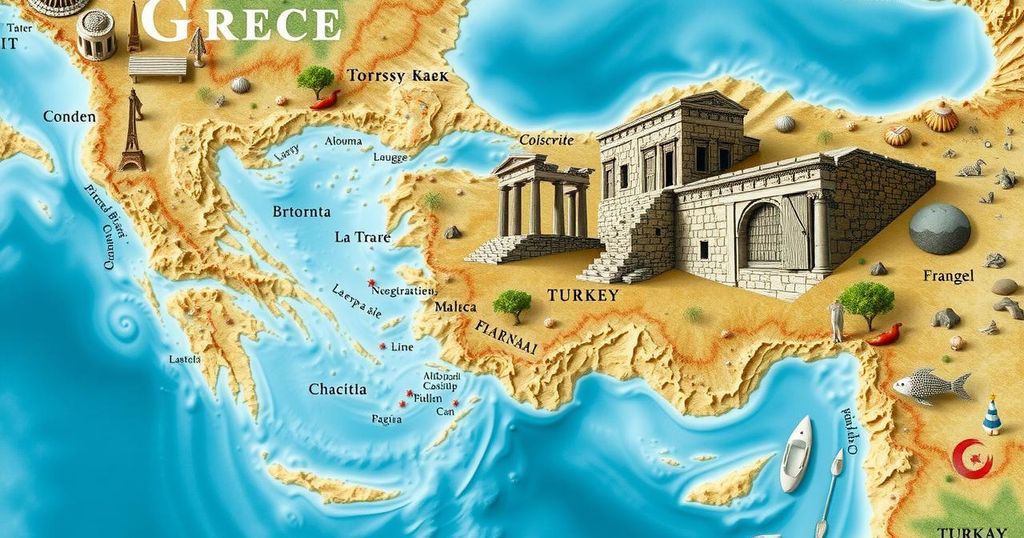Turkish President Erdoğan intensifies calls for Turkey’s EU membership, framing it as critical for the EU’s relevance. Recent geopolitical changes strengthen Ankara’s position, despite significant barriers including human rights issues and regional disputes complicating relations with Europe. Greece and Cyprus remain cautious, closely observing Turkey’s influence and asserting the importance of EU membership for their own security interests.
Turkey’s pursuit of European Union membership, led by President Recep Tayyip Erdoğan, is growing in urgency. During a meeting with Polish Prime Minister Donald Tusk, Erdoğan reiterated that Turkey’s EU accession is a strategic goal. However, his approach exhibits a dismissive attitude toward the EU. He claimed, “If the EU wants to prevent its loss of power, it can only do so through Turkey’s full membership.”
This renewed interest in EU membership aligns with the recent geopolitical fluctuations, particularly following Donald Trump’s re-emergence on the world stage. As European governments adapt to these changes, they are coming to realize the rising significance of Turkey, a nation at the crossroads of Europe and Asia. Erdoğan’s appeal for closer ties is timely, reflecting the vacuum left by the U.S. in Western security matters, which Turkey aims to fill by asserting influence in various global conflicts.
Erdoğan’s push for EU integration has raised eyebrows among European leaders. While some acknowledge the necessity of Turkey in addressing security issues, there remain significant political barriers. Turkey’s ongoing human rights violations and the deterioration of the rule of law hinder serious consideration of its EU membership. Furthermore, unresolved disputes like the Cyprus issue and Turkey’s ambiguous stance on Russia complicate relations further.
The evolving Turkey-EU relationship is particularly critical for Greece and Cyprus, who view EU membership as a vital tool against Turkish aggression. Both nations are anxious about Turkey’s increasing prominence within Europe, as it challenges the established international order. Concerns are escalating that Erdoğan might exploit instability to assert Turkey’s claims, with commentators in Greece warning about potential territorial concessions during a tumultuous period.
Greece has opted for a cautious reaction to U.S. developments, with limited official statements from its leadership. Prime Minister Kyriakos Mitsotakis has sought to reassure the nation regarding U.S. support. Meanwhile, Foreign Minister Georgios Gerapetritis has positioned Greece as a stabilizing force in the volatile region, attempting to strengthen ties with allies such as Israel amidst Erdoğan’s contentious links with Hamas, which hampers Turkey’s quest for EU integration.
The dynamics of Turkey’s EU accession efforts under Erdoğan highlight the complexities of shifting geopolitical alignments and security challenges in Europe. As Turkey embraces a more assertive global role, Greece and Cyprus remain vigilant, understanding the implications of Turkey’s potential membership and the fragility of the international order. European leaders face a critical decision concerning Turkey, balancing military needs against pressing political concerns, particularly related to human rights and regional security.
Original Source: www.ekathimerini.com




